Dish Soap Lemon Cleaning Mix: Your secret weapon for a sparkling home, naturally! Are you tired of harsh chemicals and overpowering scents when you clean? Do you dream of a home that smells fresh and looks immaculate without resorting to expensive, store-bought cleaners? Well, you’re in the right place! I’m excited to share a simple, yet incredibly effective, DIY cleaning solution that will revolutionize your cleaning routine.
For generations, our grandmothers relied on the power of natural ingredients like lemon and dish soap to keep their homes spotless. Before the advent of commercial cleaners, these readily available items were the go-to solution for everything from greasy stovetops to grimy bathtubs. This tradition isn’t just about nostalgia; it’s about harnessing the potent cleaning properties of nature in a safe and sustainable way.
In today’s world, we’re increasingly aware of the impact our choices have on the environment and our health. Many commercial cleaners contain harsh chemicals that can irritate our skin, pollute our air, and harm our planet. That’s why this Dish Soap Lemon Cleaning Mix is so essential. It’s a fantastic alternative that’s gentle, effective, and budget-friendly. Plus, who doesn’t love the invigorating scent of lemon? Get ready to ditch the chemicals and embrace a cleaner, healthier home with this easy DIY trick!
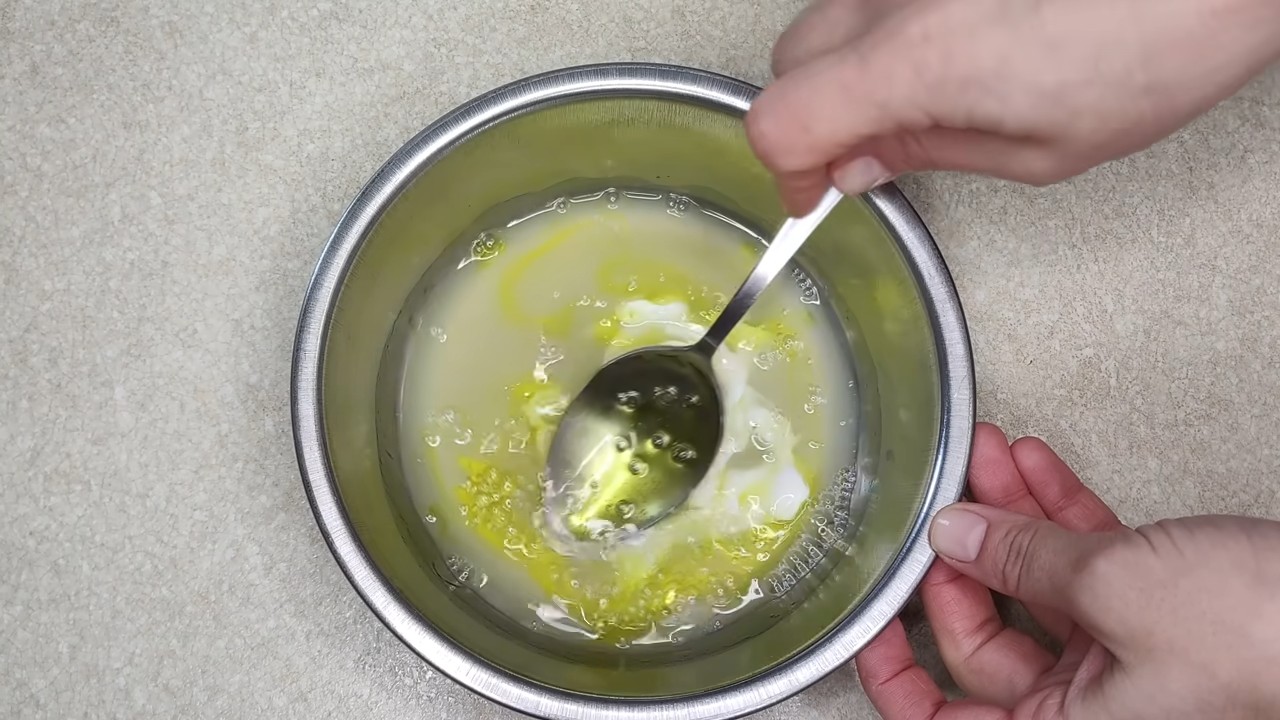
DIY All-Purpose Lemon Dish Soap Cleaning Spray
Hey everyone! I’m so excited to share one of my favorite DIY cleaning hacks with you – a super effective and incredibly fresh-smelling all-purpose cleaning spray made with just dish soap and lemons! Seriously, ditch those harsh chemicals and get ready to be amazed by the cleaning power of these two simple ingredients. This spray is fantastic for countertops, sinks, stovetops, bathroom surfaces, and so much more. Plus, it’s budget-friendly and eco-conscious – a win-win!
What You’ll Need
Before we dive in, let’s gather our supplies. Here’s what you’ll need to create this amazing cleaning spray:
* **Lemons:** About 3-4, depending on their size. We’ll be using both the juice and the peels.
* **Dish Soap:** I prefer a natural, plant-based dish soap, but any dish soap will work. Just avoid anything with bleach.
* **Water:** Distilled water is best for a longer shelf life, but tap water is fine if you plan to use the spray quickly.
* **Spray Bottle:** A clean, empty spray bottle. I recommend a 16-ounce bottle.
* **Small Saucepan:** For simmering the lemon peels.
* **Knife and Cutting Board:** For slicing the lemons.
* **Juicer or Citrus Reamer:** To extract the lemon juice.
* **Measuring Cups and Spoons:** For accurate measurements.
* **Strainer or Cheesecloth:** To remove any pulp or seeds from the lemon juice and peels from the water.
* **Optional: Essential Oils:** A few drops of your favorite essential oil (like lemon, lavender, or tea tree) can add an extra boost of fragrance and cleaning power.
Step-by-Step Instructions
Alright, let’s get started! Here’s how to make your own lemon dish soap cleaning spray:
1. **Prepare the Lemons:**
* First, thoroughly wash the lemons to remove any dirt or residue.
* Using your knife and cutting board, carefully peel the lemons, trying to avoid too much of the white pith (the white part under the peel), as it can make the spray bitter.
* Set the lemon peels aside.
* Next, juice the lemons using your juicer or citrus reamer. Aim for about ½ cup of fresh lemon juice.
* Strain the lemon juice through a strainer or cheesecloth to remove any seeds or pulp. Set the strained juice aside.
2. **Simmer the Lemon Peels:**
* Place the lemon peels in your small saucepan.
* Add about 2 cups of water to the saucepan, ensuring the peels are fully submerged.
* Bring the water to a boil over medium-high heat.
* Once boiling, reduce the heat to low and let the peels simmer for about 15-20 minutes. This process extracts the oils and cleaning power from the lemon peels.
* After simmering, remove the saucepan from the heat and let the mixture cool completely.
3. **Strain the Lemon Peel Infusion:**
* Once the lemon peel mixture has cooled, strain it through a strainer or cheesecloth into a clean bowl or measuring cup. This will remove the peels and leave you with a fragrant lemon-infused water.
* Discard the lemon peels.
4. **Combine the Ingredients:**
* In your clean spray bottle, add the strained lemon juice (about ½ cup).
* Add the lemon-infused water (about 1 cup).
* Add 1-2 tablespoons of dish soap. Start with 1 tablespoon and add more if you prefer a stronger cleaning solution.
* If you’re using essential oils, add a few drops (5-10 drops) to the spray bottle.
5. **Top Off with Water and Mix:**
* Fill the rest of the spray bottle with water, leaving a little space at the top.
* Close the spray bottle tightly and gently shake it to combine all the ingredients. Avoid shaking too vigorously, as this can create excessive suds.
Using Your Lemon Dish Soap Cleaning Spray
Now that you’ve made your amazing cleaning spray, it’s time to put it to work! Here’s how to use it effectively:
* **Spray:** Spray the cleaning solution directly onto the surface you want to clean.
* **Let it Sit:** Allow the spray to sit on the surface for a few minutes (1-2 minutes is usually sufficient) to allow the lemon and dish soap to break down dirt and grime.
* **Wipe Clean:** Use a clean cloth or sponge to wipe the surface clean. For stubborn messes, you may need to scrub a little.
* **Rinse (Optional):** If desired, rinse the surface with clean water after wiping. This is especially helpful for surfaces that come into contact with food.
* **Dry:** Dry the surface with a clean cloth or allow it to air dry.
Where to Use Your Cleaning Spray
This lemon dish soap cleaning spray is incredibly versatile and can be used on a variety of surfaces. Here are some of my favorite places to use it:
* **Kitchen Countertops:** This spray is perfect for cleaning up spills and messes on kitchen countertops. It’s safe for most countertop materials, but it’s always a good idea to test it in an inconspicuous area first.
* **Kitchen Sinks:** Keep your kitchen sink sparkling clean with this spray. It’s great for removing food residue and water spots.
* **Stovetops:** This spray can help remove grease and grime from your stovetop. Be sure to let the stovetop cool completely before spraying.
* **Bathroom Sinks and Counters:** This spray is also effective for cleaning bathroom sinks and counters. It can help remove soap scum and toothpaste splatters.
* **Showers and Tubs:** Use this spray to clean your shower and tub. It can help prevent mildew and remove soap scum.
* **Toilets:** This spray can be used to clean the exterior of your toilet.
* **Appliances:** This spray can be used to clean the exterior of your appliances, such as your refrigerator, dishwasher, and microwave.
* **Floors (Spot Cleaning):** You can use this spray for spot cleaning floors. Be sure to test it in an inconspicuous area first to ensure it doesn’t damage the flooring.
* **Windows and Mirrors:** Dilute the spray with more water (about half water, half cleaning solution) for a streak-free clean on windows and mirrors.
Important Considerations and Tips
To ensure the best results and safety, keep these points in mind:
* **Test First:** Always test the cleaning spray in an inconspicuous area before using it on a larger surface, especially on delicate or sensitive materials.
* **Avoid Certain Surfaces:** Avoid using this spray on porous surfaces like unsealed granite or marble, as the lemon juice can etch the stone. Also, avoid using it on wood furniture, as it can damage the finish.
* **Storage:** Store the cleaning spray in a cool, dark place. The shelf life is typically about 1-2 weeks, especially if you’re using tap water. If you notice any changes in color or odor, discard the spray.
* **Safety:** While this cleaning spray is made with natural ingredients, it’s still important to keep it out of reach of children and pets. Avoid spraying it directly into your eyes.
* **Adjust the Recipe:** Feel free to adjust the recipe to suit your preferences. For example, you can add more or less dish soap depending on the cleaning power you desire. You can also experiment with different essential oils to create your own custom scent.
* **Lemon Variety:** Different types of lemons can affect the scent and cleaning power. Meyer lemons are known for their sweeter, less acidic juice, while Eureka lemons are more tart.
* **Vinegar Boost:** For extra cleaning power, you can add a tablespoon of white vinegar to the mixture. However, be cautious when mixing vinegar with dish soap, as it can sometimes create a less effective cleaning solution. Test a small batch first.
* **Baking Soda Scrub:** For really tough stains, sprinkle a little baking soda on the surface before spraying with the cleaning solution. The baking soda will act as a gentle abrasive to help scrub away the grime.
* **Sunlight:** Avoid spraying this cleaning solution on surfaces that will be exposed to direct sunlight, as the lemon juice can cause discoloration.
* **Label Clearly:** Make sure to label your spray bottle clearly so you don’t accidentally mistake it for something else.
Why I Love This DIY Cleaning Spray
I absolutely love this DIY lemon dish soap cleaning spray because it’s:
* **Natural and Non-Toxic:** I feel good knowing that I’m cleaning my home with safe, natural ingredients.
* **Effective:** It really works! It cuts through grease and grime and leaves my surfaces sparkling clean.
* **Budget-Friendly:** It’s much cheaper than buying commercial cleaning products.
* **Eco-Friendly:** I’m reducing my reliance on plastic bottles and harsh chemicals.
*
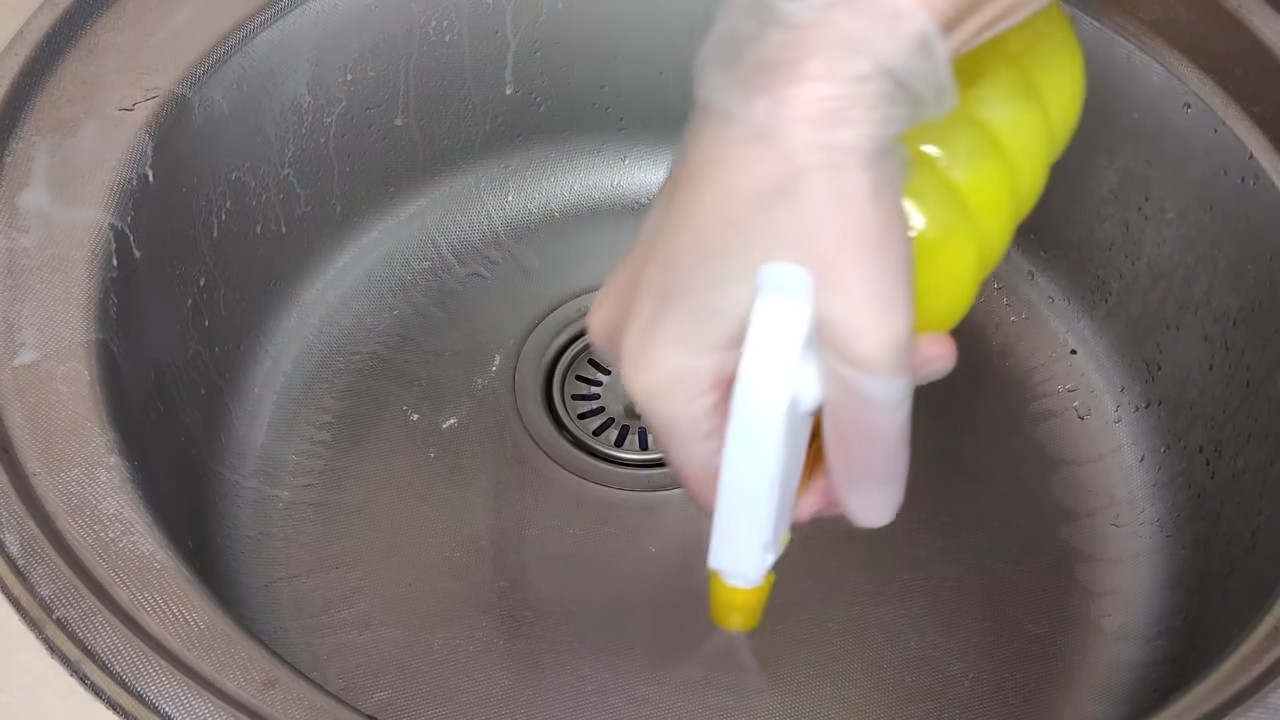
Conclusion
So, there you have it! This simple yet incredibly effective Dish Soap Lemon Cleaning Mix is more than just a cleaning solution; it’s a game-changer for your home. We’ve explored how the degreasing power of dish soap combines synergistically with the natural acidity and refreshing scent of lemon to create a powerhouse cleaner that tackles grime, grease, and odors with ease.
Why is this DIY trick a must-try? Because it’s cost-effective, eco-friendly, and remarkably versatile. Forget about spending a fortune on harsh chemical cleaners that can irritate your skin and pollute your home. This homemade solution is gentle on your surfaces, your wallet, and the environment. Plus, the invigorating lemon scent leaves your home smelling fresh and clean, not like a chemical factory.
But the benefits don’t stop there. This cleaning mix is incredibly adaptable. Feel free to experiment with different ratios of dish soap and lemon juice to find the perfect balance for your specific needs. For tougher stains, consider adding a tablespoon of baking soda to the mix for extra scrubbing power. If you prefer a thicker consistency, a touch of cornstarch can help create a paste that clings to surfaces for longer contact time.
Looking for variations? Try infusing your lemon juice with herbs like rosemary or lavender for an even more aromatic cleaning experience. You can also use different types of citrus fruits, such as lime or grapefruit, to add a unique twist to the scent and cleaning properties. Remember to always test your cleaning mix on a small, inconspicuous area first to ensure it doesn’t damage the surface.
We’re confident that once you try this Dish Soap Lemon Cleaning Mix, you’ll be amazed by its effectiveness and simplicity. It’s a fantastic way to reduce your reliance on commercial cleaners and create a healthier, more sustainable home.
Now, it’s your turn! We encourage you to give this DIY cleaning trick a try and see the results for yourself. Don’t be afraid to experiment with different variations and find what works best for you. And most importantly, we want to hear about your experience! Share your tips, tricks, and success stories in the comments below. Let’s build a community of DIY cleaning enthusiasts who are passionate about creating a cleaner, healthier, and more sustainable world, one lemon-scented surface at a time. We can’t wait to hear how this simple mix transforms your cleaning routine!
Frequently Asked Questions (FAQ)
Is this Dish Soap Lemon Cleaning Mix safe to use on all surfaces?
While this cleaning mix is generally safe for most surfaces, it’s always best to test it on a small, inconspicuous area first. Avoid using it on delicate surfaces like marble, granite, or unsealed wood, as the acidity of the lemon juice could potentially cause damage. For these surfaces, a gentler cleaning solution is recommended. Always check the manufacturer’s instructions for your specific surfaces before using any cleaning product, homemade or commercial.
What type of dish soap is best to use for this cleaning mix?
Any standard dish soap will work for this recipe. However, for optimal results, choose a dish soap that is known for its degreasing power. Consider using a natural or eco-friendly dish soap to further reduce your environmental impact. Avoid using dish soaps that contain harsh chemicals or artificial fragrances, as these can be irritating to the skin and respiratory system.
How long will this cleaning mix last?
This cleaning mix is best used fresh, as the lemon juice can lose its potency over time. We recommend making a small batch that you can use within a week or two. Store the mix in an airtight container in a cool, dark place to help preserve its effectiveness. If you notice any changes in color, odor, or consistency, discard the mix and make a fresh batch.
Can I use bottled lemon juice instead of fresh lemons?
While fresh lemon juice is preferred for its superior scent and cleaning properties, bottled lemon juice can be used as a substitute in a pinch. However, keep in mind that bottled lemon juice may not be as potent as fresh lemon juice, so you may need to use a slightly larger amount to achieve the same results. Also, be sure to choose a bottled lemon juice that is 100% lemon juice and does not contain any added sugars or preservatives.
What are some specific uses for this cleaning mix?
This cleaning mix is incredibly versatile and can be used for a wide range of cleaning tasks around the home. It’s excellent for cleaning kitchen countertops, sinks, stovetops, and appliances. It can also be used to clean bathroom surfaces, such as tiles, showers, and toilets. Additionally, it’s effective for removing grease and grime from tools, outdoor furniture, and even car interiors. Just remember to test it on a small area first to ensure it doesn’t damage the surface.
Can I add other ingredients to this cleaning mix?
Yes, you can definitely add other ingredients to this cleaning mix to customize it to your specific needs. Baking soda is a great addition for extra scrubbing power, while vinegar can help to disinfect and remove hard water stains. Essential oils, such as lavender, tea tree, or eucalyptus, can be added for their antibacterial and antifungal properties, as well as their pleasant scents. Just be sure to research the properties of any ingredients you add to ensure they are safe to use on the surfaces you plan to clean.
Is this cleaning mix safe for pets and children?
While this cleaning mix is made with natural ingredients, it’s still important to keep it out of reach of pets and children. The lemon juice can be irritating if ingested, and the dish soap can cause stomach upset. Store the mix in a secure location where pets and children cannot access it. When cleaning, keep pets and children away from the area until the surfaces are completely dry.
How do I dispose of this cleaning mix?
This cleaning mix is biodegradable and can be safely disposed of down the drain. However, if you have a septic system, it’s best to avoid pouring large amounts of lemon juice down the drain, as the acidity could potentially disrupt the balance of bacteria in your septic tank. In this case, it’s best to dispose of the mix in a compost bin or yard waste container.
What if the cleaning mix leaves a residue on the surface?
If the cleaning mix leaves a residue on the surface, simply wipe it away with a clean, damp cloth. You may need to rinse the surface with water to remove any remaining residue. To prevent residue buildup, use the cleaning mix sparingly and avoid using too much dish soap.
How does this cleaning mix compare to commercial cleaners?
This Dish Soap Lemon Cleaning Mix offers a natural and eco-friendly alternative to commercial cleaners. While commercial cleaners may contain harsh chemicals and artificial fragrances, this homemade mix is made with simple, readily available ingredients that are gentle on your surfaces and the environment. It’s also a more cost-effective option, as you can make a large batch of cleaning mix for a fraction of the cost of commercial cleaners. While some commercial cleaners may offer stronger cleaning power for specific tasks, this DIY mix is a versatile and effective option for everyday cleaning needs.
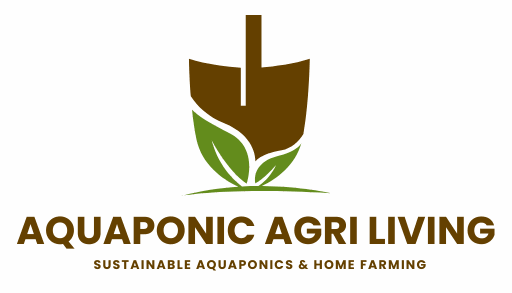
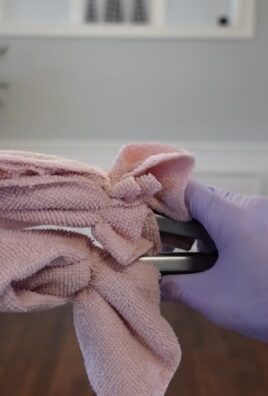
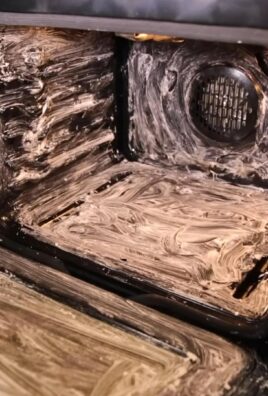
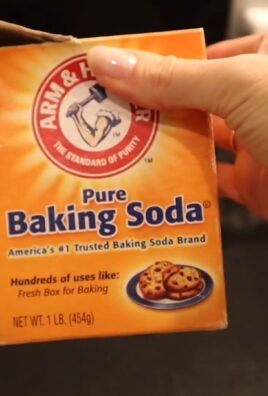
Leave a Comment